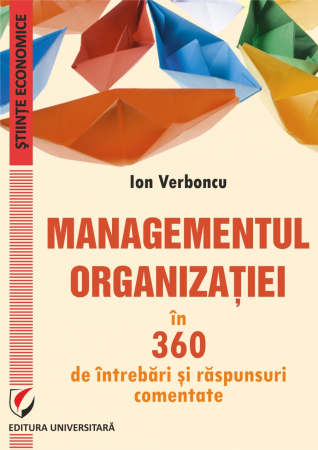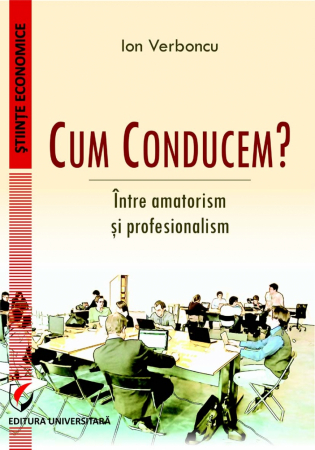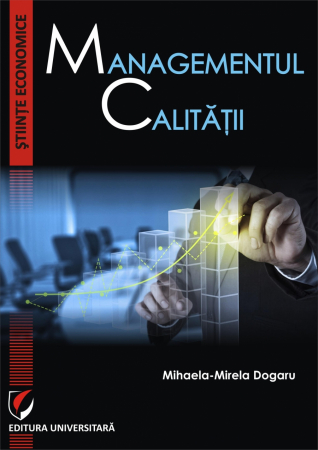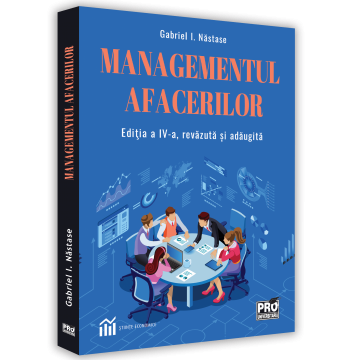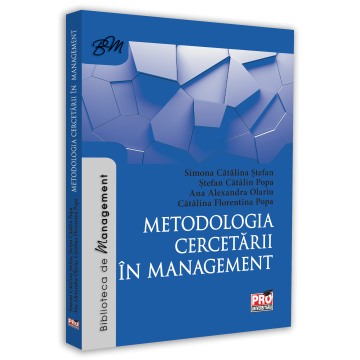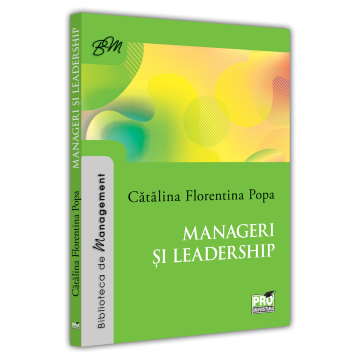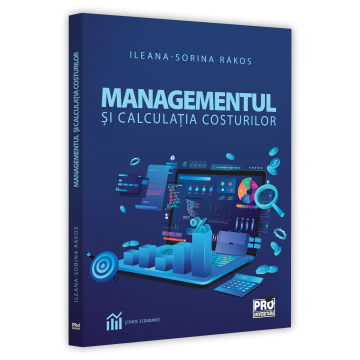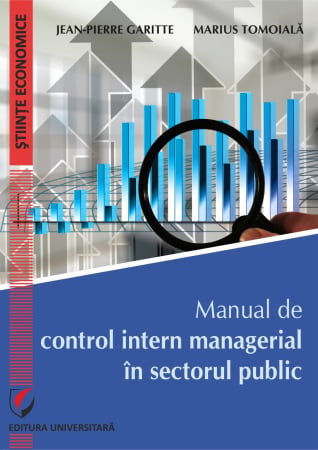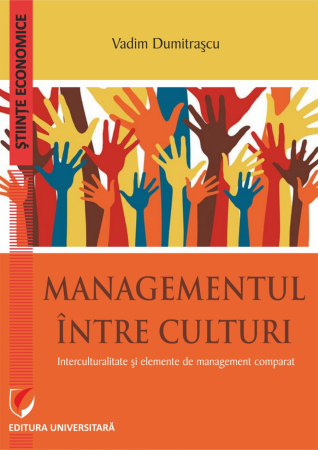Manuscript proposals: info@editurauniversitara.ro / 0745 204 115 //// Tracking orders Individuals / Sales:0745 200 718 / 0745 200 357 Orders Legal entities: 0721 722 783
 Entrepreneurship. The road from ideas to opportunities and success in business. ANNIVERSARY EDITION 2011-2021 - Marius Ghenea
Entrepreneurship. The road from ideas to opportunities and success in business. ANNIVERSARY EDITION 2011-2021 - Marius Ghenea
Publisher: Evrika
Author: Marius Ghenea
Pages: 368
Publisher year: 2021
ISBN: 978-606-95129-1-3
Product Code:
9786069512913
Do you need help?
0745 200 718
/
0745 200 357
- Description
- Authors
- Content
- More details
- Where to find it
- Reviews (0)
Every anniversary has mixed within it beautiful, but diverse and sometimes contradictory feelings: on the one hand, joy, because durability, permanence are intrinsic elements of value, success, performance; on the other hand, sadness or, in any case, nostalgia, because, when you look back, especially for longer periods of time, you often find that people, companies, have stayed there, important events, people and things that are gone, and some don't even come back. I am all the more glad that we can launch this 10th anniversary edition, even with its original content, but enriched with many thoughts and ideas from people who have something to say not only in business, but also in education and society. Romanian.
I thought in this situation that I should take on a 10-year sui generis challenge, namely to try to see what has changed in recent years in the Romanian and international entrepreneurial landscape, compared to what I was doing at that time. in the pages of the book “Entrepreneurship. The road from ideas to opportunities and success in business ". And in this hurried, globalized and technological age, change has remained, it seems, the only "constant" of our lives. In 2011, at the launch of the book, our society had just begun to emerge, quite timidly, from the global financial crisis, although its signs were still visible everywhere. Ten years later, we are in another crisis, which does not look at all as the previous crisis showed: it is an asymmetric crisis, which started from the health crisis and then spread with shock waves, very strange and uneven, in various business fields and in many aspects of social life, of society as a whole. And whose effects will, I am afraid, be felt for a much longer time than in any crisis before it.
I thought in this situation that I should take on a 10-year sui generis challenge, namely to try to see what has changed in recent years in the Romanian and international entrepreneurial landscape, compared to what I was doing at that time. in the pages of the book “Entrepreneurship. The road from ideas to opportunities and success in business ". And in this hurried, globalized and technological age, change has remained, it seems, the only "constant" of our lives. In 2011, at the launch of the book, our society had just begun to emerge, quite timidly, from the global financial crisis, although its signs were still visible everywhere. Ten years later, we are in another crisis, which does not look at all as the previous crisis showed: it is an asymmetric crisis, which started from the health crisis and then spread with shock waves, very strange and uneven, in various business fields and in many aspects of social life, of society as a whole. And whose effects will, I am afraid, be felt for a much longer time than in any crisis before it.
Marius Ghenea
Marius Ghenea
- Serial entrepreneur and a Romanian business angel with successful exits, present in all the Capital and Forbes charts in recent years;
- Included in the Top 10 businessmen 2004 by Ziarul Financiar, the award for the best Romanian entrepreneur in the 2008 series from Target magazine, the award for entrepreneurial vision 2010 from Biz Magazine, etc .;
- President of the Romanian Association of Online Stores; Board of Directors for the Venture-Connect Forum; Board Advisor Maastricht School of Management Romania; Board Member in the Community Foundations Program;
- Supports organizations such as AIESEC, Leaders Romania, JCI;
- Professor of Entrepreneurship in the EMBA program of the Maastricht School of Management;
- Permanent guest of TVR's Arena Leilor show;
- Co-organizer and lecturer of the entrepreneurial school SchoolforStartups Romania;
- Author of the first Romanian book on entrepreneurship: "Entrepreneurship, the road from ideas to opportunities and success in business"
Based on the experience gained so far, Marius Ghenea wrote the book “Entrepreneurship. The road from ideas to opportunities and success in business ”exclusively for the business environment in our country and for Romanian entrepreneurs, who need a guide to help them in the specific problems of the business environment in Romania.
- Serial entrepreneur and a Romanian business angel with successful exits, present in all the Capital and Forbes charts in recent years;
- Included in the Top 10 businessmen 2004 by Ziarul Financiar, the award for the best Romanian entrepreneur in the 2008 series from Target magazine, the award for entrepreneurial vision 2010 from Biz Magazine, etc .;
- President of the Romanian Association of Online Stores; Board of Directors for the Venture-Connect Forum; Board Advisor Maastricht School of Management Romania; Board Member in the Community Foundations Program;
- Supports organizations such as AIESEC, Leaders Romania, JCI;
- Professor of Entrepreneurship in the EMBA program of the Maastricht School of Management;
- Permanent guest of TVR's Arena Leilor show;
- Co-organizer and lecturer of the entrepreneurial school SchoolforStartups Romania;
- Author of the first Romanian book on entrepreneurship: "Entrepreneurship, the road from ideas to opportunities and success in business"
Based on the experience gained so far, Marius Ghenea wrote the book “Entrepreneurship. The road from ideas to opportunities and success in business ”exclusively for the business environment in our country and for Romanian entrepreneurs, who need a guide to help them in the specific problems of the business environment in Romania.
content
INTRODUCTION / 55
Why a book about entrepreneurship? / 57
Who should read this book? / 63
CHAPTER 1
What you need to know about entrepreneurship / 69
A brief history of entrepreneurship / 69
Definitions of entrepreneurship / 75
Functions and attributes of an entrepreneur: the 4A (+1) / 78
Qualities needed for a successful entrepreneur / 83
Social entrepreneur, non-entrepreneur,
entrepreneur: types of entrepreneurs / 96
CHAPTER 2
How to start a business / 109
The debatable value of business ideas / 109
From idea to opportunity / 122
Business plan / 132
Entrepreneurship / 51
CHAPTER 3
Sources of financing / 145
Introduction / 145
Bootstrapping: tightening the belt as a source of business financing / 149
Personal sources: what it means to risk everything in a business / 162
The three P's: parents, friends and other fools / 166
Investor angels: lions, dragons or sharks? / 174
Banks: cheap money or expensive money? / 192
Investment funds: the next stage of development / 196
European funds: the myth of "free" money / 206
Listing on the stock exchange and other sources of financing / 211
CHAPTER 4
Business development management / 219
Growth pain / 219
New markets, new products, new territories / 244
External growth resources / 262
Business with problems and restructuring solutions / 281
CHAPTER 5
The end of the business from the entrepreneurial perspective / 299
The business, the beloved "child" of any entrepreneur / 299
About business cycles / 301
The most unpleasant end of the business: bankruptcy / 307
Succession in the family (or outside the family) / 312
Partial or total success / 317
Serial Entrepreneurs: The Continuing Story / 329
CHAPTER 6
Myths and stereotypes about entrepreneurs / 333
Four stereotypes about Romanian entrepreneurs / 333
The 10 myths about entrepreneurs in general / 342
Strengths and weaknesses of Romanian entrepreneurs / 349
CHAPTER 7
The five "fatal" entrepreneurial mistakes / 355
Entrepreneurial mistakes: smaller or fatal / 355
My mistakes and those of other entrepreneurs / 361
INTRODUCTION / 55
Why a book about entrepreneurship? / 57
Who should read this book? / 63
CHAPTER 1
What you need to know about entrepreneurship / 69
A brief history of entrepreneurship / 69
Definitions of entrepreneurship / 75
Functions and attributes of an entrepreneur: the 4A (+1) / 78
Qualities needed for a successful entrepreneur / 83
Social entrepreneur, non-entrepreneur,
entrepreneur: types of entrepreneurs / 96
CHAPTER 2
How to start a business / 109
The debatable value of business ideas / 109
From idea to opportunity / 122
Business plan / 132
Entrepreneurship / 51
CHAPTER 3
Sources of financing / 145
Introduction / 145
Bootstrapping: tightening the belt as a source of business financing / 149
Personal sources: what it means to risk everything in a business / 162
The three P's: parents, friends and other fools / 166
Investor angels: lions, dragons or sharks? / 174
Banks: cheap money or expensive money? / 192
Investment funds: the next stage of development / 196
European funds: the myth of "free" money / 206
Listing on the stock exchange and other sources of financing / 211
CHAPTER 4
Business development management / 219
Growth pain / 219
New markets, new products, new territories / 244
External growth resources / 262
Business with problems and restructuring solutions / 281
CHAPTER 5
The end of the business from the entrepreneurial perspective / 299
The business, the beloved "child" of any entrepreneur / 299
About business cycles / 301
The most unpleasant end of the business: bankruptcy / 307
Succession in the family (or outside the family) / 312
Partial or total success / 317
Serial Entrepreneurs: The Continuing Story / 329
CHAPTER 6
Myths and stereotypes about entrepreneurs / 333
Four stereotypes about Romanian entrepreneurs / 333
The 10 myths about entrepreneurs in general / 342
Strengths and weaknesses of Romanian entrepreneurs / 349
CHAPTER 7
The five "fatal" entrepreneurial mistakes / 355
Entrepreneurial mistakes: smaller or fatal / 355
My mistakes and those of other entrepreneurs / 361
The ten-year challenge: about the book
"Entrepreneurship", on the anniversary
"Entrepreneurship", on the anniversary
Every anniversary has mixed within it beautiful, but diverse and sometimes contradictory feelings: on the one hand, joy, because durability, permanence are intrinsic elements of value, success, performance; on the other hand, sadness or, in any case, nostalgia, because, when you look back, especially for longer periods of time, you often find that people, companies, have stayed there, important events, people and things that are gone, and some don't even come back. I am all the more glad that we can launch this 10th anniversary edition, even with its original content, but enriched with many thoughts and ideas from people who have something to say not only in business, but also in education and society. Romanian.
I thought in this situation that I should take on a 10-year sui generis challenge, namely to try to see what has changed in recent years in the Romanian and international entrepreneurial landscape, compared to what I was doing at that time. in the pages of the book “Entrepreneurship. The road from ideas to opportunities and success in business ". And in this hurried, globalized and technological age, change has remained, it seems, the only "constant" of our lives. In 2011, at the launch of the book, our society had just begun to emerge, quite timidly, from the global financial crisis, although its signs were still visible everywhere. Ten years later, we are in another crisis, which does not look at all as the previous crisis showed: it is an asymmetric crisis, which started from the health crisis and then spread with shock waves, very strange and uneven, in various business fields and in many aspects of social life, of society as a whole. and whose effects will, I am afraid, be felt for a much longer time than in any crisis before it.
But let's see what has changed in the last ten years: certainly, what has not changed is the role of entrepreneurship in achieving innovation, business success and, in general, in economic and social development both in Romania and abroad. all over the world. Of course, the quantitative change in these ten years is truly impressive in our country and perhaps, modestly, this book has also played a humble role. Hundreds of thousands of new businesses have sprung up in ten years, and many of them have prospered, while many of the businesses that existed in 2011 have grown rapidly in the following years, especially amid economic recovery, but also benefiting from many new information, consulting, training and advisory programs, programs in which I also got involved, because I considered this book only one of the elements of contribution to entrepreneurial development, other elements being all these other programs and projects for Romanian entrepreneurship, which some of you know. From a qualitative point of view or as an aspect of the public approach to entrepreneurship education, I am afraid that, in these ten years, the steps have been a bit hesitant, if we consider, for example, that it disappeared about eight years ago. "Arena Leilor", which really had its merit in laying some solid bricks in the construction of our entrepreneurial ecosystem, to see in 2020 a remake on a commercial television, not on the public one, also with lions and a kind of empire , but which, in my opinion, with all due consideration for some of the participants (not for all, so as not to be confused!), seems to me to be a not very successful combination between "Romanians have talent" and "Turnkey dreams"; in other words, we are not very interested in the business merits of the projects presented, but the show talent of the candidates and, why not, the personal or family problems they face, because if you can't shed a tear, you can't receive value-added SMS. Or very close to the famous phrase from Nae Caranfil's fabulous film, "Philanthropy": "The outstretched hand that does not tell a story does not receive alms." Or, I, personally, believe that business is not exactly that, it is not "alms" either in the sense that investors put money into business for "philanthropic" interests or in the sense that entrepreneurs should ever go to investors with hand outstretched! Entrepreneurship and investment mean partnership; if no solid partnership is established between entrepreneurs, business success is impossible!
There have been important changes in business and society, and one of these changes has to do with a constant of human nature: the appetite for risk and the desire to "play". This is how the "bubble" of cryptocurrencies appeared and inflated in an exaggerated way, with bitcoin as the most representative speculation of the beginning of the third millennium, but which only in recent years has really become a topic of discussion in the agora, where In 2011 it was only a topic of discussion among IT "scholars", who spoke more about the possible implications of blockchain technology, which was the basis of bitcoin, than about the intrinsic value of the currency. From those scholars, I later understood that blockchain technology cannot easily penetrate real-world applications, and 10 years later, we are still talking about this technology in the future. Instead, the coins (some now called "tokens") went up to heaven, as an assessment, driven by the passion for gambling, for "gamble", of many people around the world. Because, yes, until the entry of large investment funds or other institutional investors in this area, the growth of cryptocurrencies was fueled by people passionate about "pacanele" or betting. These people who consider themselves "players" have apparently taken an oath never to sell the coins, so that, as there are not many sales, on a simple economic rule, the price has risen even faster, although behind the coin, to we understand each other, there is nothing, there is no fundamental value behind these cryptocurrencies. How will it end? Like any pyramid scheme (this being, by far, the largest pyramid scheme in human history), with some people making huge gains, and others, most, substantially losing all the money, sometimes money they could not afford. to lose them.
A tip for everyone, not just about cryptocurrencies: don't put in speculative investments, especially those of this kind, which are hyper-speculative, than the money you can afford to lose. and try to mark your profit when you have an opportunity. However, cryptocurrencies are really just the tip of the iceberg of speculation and "bubble". There are many other things that are happening in the present and that should make us worry about the future, because, as has been shown in the past, any "bubble" that breaks leads to large losses and a huge consumption of energy and of money, which leaves a vacuum behind them. And the novelty of the years 2020-2021 is to see huge "bubbles", well inflated and close to the breaking point, which inflate other "bubbles", as recently demonstrated by Elon Musk, who sits on the "bubble" Tesla (a company with a much higher valuation than any reasonable multiples in this world) and which recently fueled the bitcoin "bubble", putting significant sums there, but then saying a few words when asked how it considers the current value of bitcoin, answering dryly "too high". And this statement, it seems, was the basis for an almost unprecedented decrease in this short-term asset. Probably the area with the greatest dynamics in the last ten years, at least from the perspective of the Romanian business ecosystems, was the financing part. Ten years ago, when I was writing this chapter of the book, I had identified about 15-20 such financing methods, depending on how I framed them, because some could be considered a subset of another financing method on the list. In these ten years, we have identified other methods, and some have appeared only in the meantime, so we have already reached 30 such financing methods, either debt, equity, or mezzanine, but also funds. European and other types of non-reimbursable financing that do not automatically fall into the debt category, but are not equity either. These methods are, in fact, detailed in my intensive entrepreneurship course, one of the most interesting programs I have launched in recent years, in which the number of alumni, graduates of this course has already reached over 500, so as in the BusinessMrive miniMBA program the number of alumni exceeded one thousand, this being a larger program, also intensive, but of weekly boot camp type, which I launched together with Dragos Popescu in 2012, only one year after the first publication of the book "Entrepreneurship".
But, because we are talking about programs for entrepreneurs and managers, it would be interesting to see how this segment of entrepreneurs and managers has developed in Romania, from 2011 until now. Again, on a simple analysis, we see an extraordinary increase, possibly even the most significant compared to the base of ten years ago in the entire European Union! Of course we like to complain about pity and say that we are at the tail end of Europe, but we must note, why not with pride, that, at least in certain segments, we can fight on an equal footing with almost anyone in Europe and the world. And a wonderful example from this point of view is the IT area. Not only does Romania have one of the best Internet infrastructures in Europe and in the world, but, in addition, an impressive number of IT specialists work on this infrastructure, who brought the news of the value of Romanian entrepreneurship abroad! If we look at the exceptional achievements, Romania now has its first decacorn (a recently launched term that defines a unicorn at least ten times higher than the billion-dollar rating at which a company can be called a unicorn) and could, in fact, even without knowing still, let's have a few more unicorns or at least soonicorns (soonicorn is also a recently invented term that describes a fast-growing company that is estimated to soon exceed $ 1 billion).
You will say that these are the exceptions to the rule, but I assure you that is not the case: even if many companies will never reach billions, the Romanian IT industry is, as a percentage of national GDP, the second best from all over the European Union, being surpassed only by Ireland, where most of the huge American companies called Big Tech (Facebook, Google, etc.) have made their headquarters, for reasons of language, time zone, but especially for tax reasons reduced. The discussion about unicorns started in Romania about 10 years ago, but then it seemed like a beautiful dream, and now it is a reality with multiple facets. And I, personally, would like to invest in Romanian companies in the next ten years, which will also reach this level; in fact, since 2014, this has been my main activity and I am proud to have participated in the development of dozens of IT and technology companies in Romania and Eastern Europe, during this period, companies that have meanwhile increased in revenue many millions or tens or hundreds of millions of euros, and some of them made important transactions with strategic investors: PC Garage was acquired by eMAG, part of the Naspers group; Vector Watch technology was acquired by Fitbit, now part of Google; SmartBill received a major strategic investment from Visma, the largest company in the European economic space in the field of cloud-business-processes, and recently we announced another important transaction: Green Horse Games was acquired by Miniclip, a subsidiary of The world's largest gaming company, Tencent.
These are just a few examples, but there are many other companies in which I have been involved, in which I have invested, in which I have participated in the boards of these organizations to help them with their strategy and future plans. And for me there are two important moments of pride, one when the people next to me develop both professionally and personally, which I try to support with all my resources and possibilities, and the other moment of pride is when these accumulations, favored by a better exit strategy, which, in the same way, they substantially support as an investor and partner of these entrepreneurs, lead to a materialization of their investment of intelligence, effort, passion and perseverance; more precisely, more in Romanian, when, after a transaction, they become millionaires "with proper documents" (ie millions in the account). Last year alone, I helped almost ten Romanian entrepreneurs become millionaires in this strict sense of the word, and my pride is not one of vanity or pride, but I simply know that these people, when they do, work and their intelligence, large sums of money, they will carefully reinvest, they will reinvest in the same ecosystem and here's how we manage, I'm sure, to create that flywheel, that virtuous circle through which spectacular effects of multiplication in the cascade appear, because those who have known success in the past and already have a beautiful business experience behind can invest with the new generation of entrepreneurs and can help them continue on the same cycle of professional and personal development, and finally again with a adequate exit strategy, to materialize this investment again and again. and, if I draw the line, over time, taking into account the almost 30 companies in which I was involved, the vast majority going and achieving significant business success, I have probably helped hundreds of Romanian entrepreneurs and managers to achieve this status of millionaires. and this actually means the real contribution that many other experienced Romanian businessmen can make, who have started, more and more sustained, to go in this direction.
Towards the end, a word of thanks to these business people and from important social areas for entrepreneurship, who shared their beautiful thoughts about the book, but especially about me and the way they see me. I wish I could always live up to the extraordinary expectations they have of me, but at the same time, I have done and will do everything to mobilize them as well, with me many are already involved in entrepreneurship programs. in which I am also involved - let's try so that together we can give in the next ten years and more than we have given in the last ten years for our Romanian entrepreneurial society from which we come and which, in turn, has given us a lot: more books (I have already promised a new work, maybe even next year) , more educational programs, more involvement in our entrepreneurial organizations and, further, other useful initiatives for the Romanian entrepreneurial ecosystem.
But otherwise, nothing has changed in the last ten years in business, because business principles are perennial, they do not take into account fashion or seasonal trends, and, as those who have read a few business books know, books about business written 40-50 or even almost a hundred years ago still retains its validity today, when they analyze the fundamental concepts and principles. For everything else and especially for implementation, you should always turn to those who have the right experience, at the right time, in the right place.
Marius Ghenea
www.editurauniversitara.ro
If you want to express your opinion about this product you can add a review.
write a review
Customer Support Monday - Friday, between 8.00 - 16.00
0745 200 718 0745 200 357 comenzi@editurauniversitara.ro
![Entrepreneurship. The road from ideas to opportunities and success in business. ANNIVERSARY EDITION 2011-2021 - Marius Ghenea [1] Entrepreneurship. The road from ideas to opportunities and success in business. ANNIVERSARY EDITION 2011-2021 - Marius Ghenea [1]](https://gomagcdn.ro/domains/editurauniversitara.ro/files/product/large/entrepreneurship-the-road-from-ideas-to-opportunities-and-success-in-business-anniversary-edition-2011-2021-marius-ghenea-3101-5357.png)



